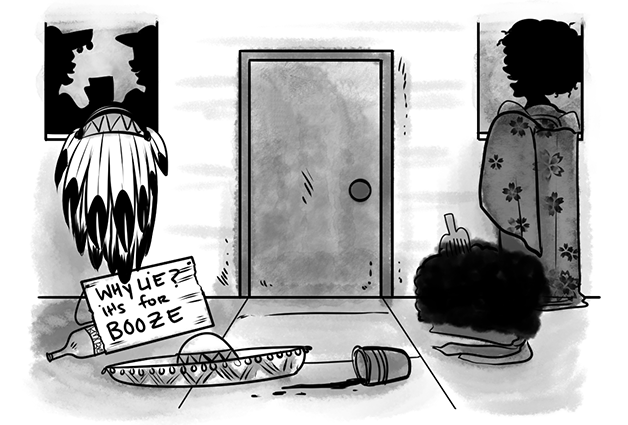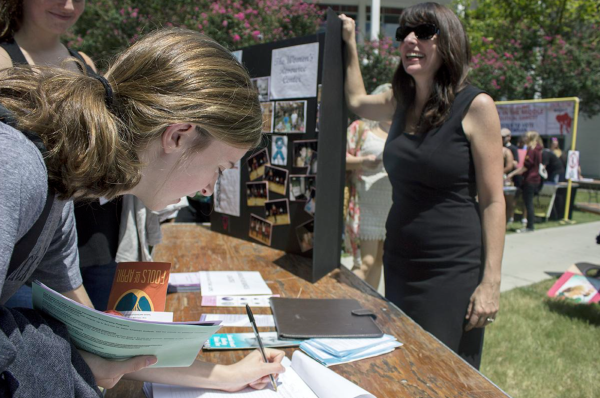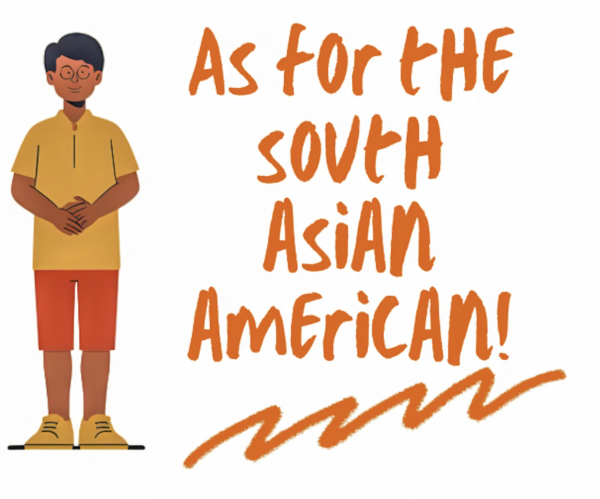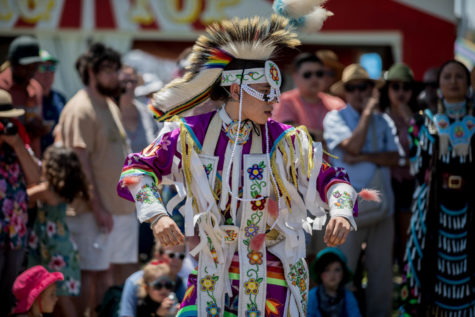Mindful masquerading
When wearing celebratory garb and throwing themed parties, it is important to be considerate and mindful of the cultures you are emulating and potentially offending
Weekends are welcomed opportunities to abandon the stress and pressure that accompany the rigors of an academic school week, and parties are ingrained elements of college culture. They are easy, effortless ways to let loose, have fun and interact with your peers in a less rigid setting than the one that academia provides.
The cliché manifestation of the college party that we are bringing into question today is not the red solo cup, or the beer pong table, or your twenty pound keg. Those are fine. Keep those.
Today, we’d like to talk about themed parties.
Don’t get us wrong — invite any one of us to a masquerade and we’ll be there, no questions asked. There is nothing inherently wrong with dressing in costume, cutting loose and letting bottled inhibitions fly without the repercussions that come with being readily identifiable.
But sometimes, when college students release all of of these inhibitions, they often abuse these forums and turn them into something a little less jovial and light-hearted.
To state it simply — costume parties are not an excuse to be tasteless, lewd and offensive.
Two weeks ago, Louisiana State University’s chapter of Kappa Kappa Gamma hosted a party with the theme, “What I’d Be Without My Degree?” Many of its members dressed up as homeless people and carried signs boasting various offenses, like “Homeless + Thirsty,” “Obama ain’t the only one who wants change” and “I bet u a drink u red this.”
This party’s theme minimizes the plight of one of the most vulnerable groups in our populous. And this critique on its own does not even begin to take into account the fact that Louisiana boasts one of the most notoriously ignored homeless populations in the country.
This past fall, many Tulane students painted their faces and wore feathered headdresses in an attempt to emulate Native Americans at a fraternity themed party called “Dranksgiving.”
This was not done respectfully or to memorialize one of the most persecuted minority groups in America’s dark history of colonial imperialism. It was done for the sake of fraternizing and drinking in colorful, celebratory garb.
Loyola organizations too have been guilty of this same brand of insensitivity. Greek organizations recently hosted a stepping party in which members from Panhellenic Association and Interfraternity Council sororities and fraternities stepped with historically black sororities from the National Pan-hellenic Council. What this event may have failed to account for was that the tradition of stepping emerged from historically black groups that were formulated in response to the conditions of a segregated society that refused to include and welcome them in historically white sororities and fraternities. Throwing parties like these are not inherently offensive, but when these origins are not taken into consideration, it is hard to assume that intentions are in the right place.
These all follow a trend of insensitive Greek-sponsored events in the Louisiana community this past year, which stems from a greater tradition of racial segregation and cultural insensitivity in the South.
These roots run deep. In the 1962 edition of The Wolf Yearbook, Loyola’s chapter of Tri Phi represented “the South of long ago” in a choral performance. Half of its members wore black face. Half did not. These halves were separated. The page before shows pictures of its members’ faces being painted and is accompanied with the caption: “One more dab ought to do and not even your mother will recognize you.”
It is important that this editorial does not read as an attack on Greek life and Greek sponsored events. These parties reflect a larger culture of insensitivity. They do not necessarily reflect the morals of the social groups they were hosted by, but rather, the morals of the society that these groups are found in.
After all, we are the millennial generation, found at music festivals across the country garbed in the likes of Urban Outfitters and Forever 21 — companies who directly profit from the exploitation and commodification of minority cultures and their respective traditional wears.
Before things get too lofty, we’ll bring it back to this — try a little empathy. Have your fun; throw your themed parties; go to all the Mardi Gras parades you please. But we’ll say it again — do not make a costume out of culture. Practice sensitivity instead.

Lauren is an English writing sophomore. She has previously worked on The Maroon as an editorial assistant, a staff writer, and as a copy editor. In her...











